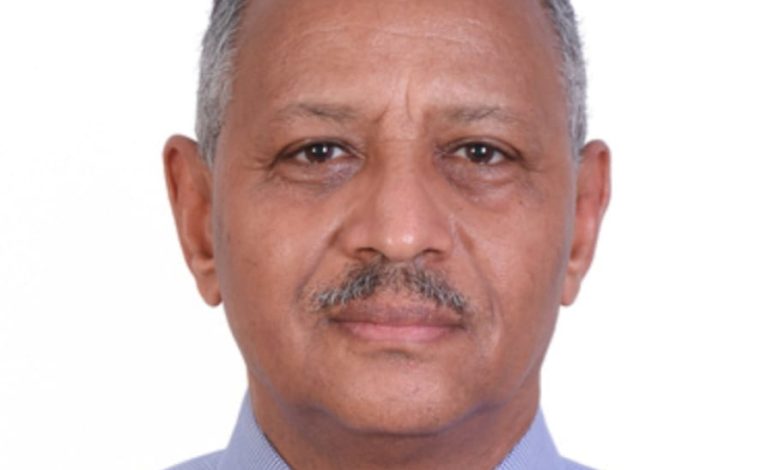The Transition That Doesn’t Transition!!

By: Al-Abid Ahmed Murawih
As of the 11th of June (the day after tomorrow), it will have been six years and sixty days since the fall of the “Inqadh” regime. That same period is also the amount of time the Sudanese people have spent in a state of “waiting” for the opportunity to go to the ballot box and choose their rulers of their own free will—thus marking the end of the “transitional” period. But that never happened. Nor is there any sign it will happen soon. Ever since the leadership of the armed forces and the security committee of the regime successfully “removed the head of the regime” and placed him under arrest, we have been in a constant state of transition—from one document to another, from one amendment to the next—starting over each time from zero, instead of counting down!
The slogans with which the architects of the April 2019 change galvanized the public were dazzling. After they had pinned every despicable label on the “Inqadh” regime, they told us we were embarking on a transition from a totalitarian system to a pluralistic democratic one, from a time of isolation to a time of openness, from hardship to prosperity. And that we were only a few months—no more than forty—away from exercising our right to elect our rulers and parliamentary representatives. Until then, we were told, we should accept the temporary arrangement of civilian and military leaders who had forged a partnership to facilitate the transition.
But before the first year had passed, the two partners of the transitional period—the military and the civilian components—introduced a third partner. They told us that his inclusion required resetting the clock of the transition and starting from zero again. We were assured the year that had passed was not in vain; it was, in fact, part of fulfilling one side of the triangle of the revolution’s main slogan: Freedom, Peace, and Justice. And so the partnership structure shifted from dual to plural, and we found ourselves governed by “the partners” of the transition instead of two partners. We had no choice but to say, “So be it.”
These “partners” amended the Constitutional Document based on the political agreement signed in Juba, South Sudan’s capital, on March 3, 2020—perhaps in emulation of the agreement signed by President Jaafar Nimeiri’s regime in Addis Ababa on March 3, 1972. They granted the political agreement (the Juba Peace Agreement) supremacy over the amended Constitutional Document in case of any conflict between texts. More importantly, while amending the document, the partners made sure to include a clause that legally codified the new partnership. Thus, Article (80) of the amended 2020 Constitutional Document stated:
“A council named ‘The Transitional Partners Council’ shall be established, comprising parties to the political agreement within the Constitutional Document, the Prime Minister, and the peace process parties who signed the Juba Peace Agreement. Its mandate shall be to resolve differences in viewpoints among the various parties, serve Sudan’s supreme interests, and ensure the success of the transitional period. The Transitional Partners Council shall have the authority to issue regulations governing its operations.”
The council met no more than five times before tensions broke out. Bickering intensified between the Forces of Freedom and Change (Central Council faction) and the military members of the Sovereignty Council. It seems the FFC decided to let the council die a slow death through neglect, sending only its lower-tier leaders to attend meetings. This disrupted deliberations and turned discussions into arguments. Consequently, some military members of the Sovereignty Council boycotted the meetings in protest at the unprofessional conduct of some FFC members. Thus, the Transitional Partners Council became paralyzed—just like the other transitional authorities that never fully materialized, such as the Legislative Council, the Constitutional Court, and the High Judicial Council.
Then events escalated rapidly. Following the paralysis of the council, came the collapse of the partnership between the civilian and military components on October 25, 2021. The FFC was ousted from power, angering its regional and international backers. These backers later succeeded in winning over one faction of the military component and crafted a “Framework Agreement” to overthrow the other faction. However, the coup they meticulously planned failed—and what was meant to be a political maneuver turned into a full-blown war, the consequences of which we’ve been living with for over two years.
Now, after nearly three and a half years of a crippled “transition” and relentless waves of major events tossing us from one crisis to the next, a new opportunity seems to be emerging to breathe life back into the body of the transition and restore some of its vitality. That comes with the appointment of a civilian prime minister with full powers. In light of this positive step, it is necessary to rekindle the hopes of Sudanese people for a different kind of transition—one based on solid foundations, led by both old and new partners, aimed at reorganizing the political landscape and completing the transitional institutions: the Partners Council, the Legislative Council, the Constitutional Court, the High Judicial Council, and a deliberate Sudanese-Sudanese dialogue that charts a thoughtful path toward Sudan’s future.
Translated from “Al-Muhaqiq” News Website



